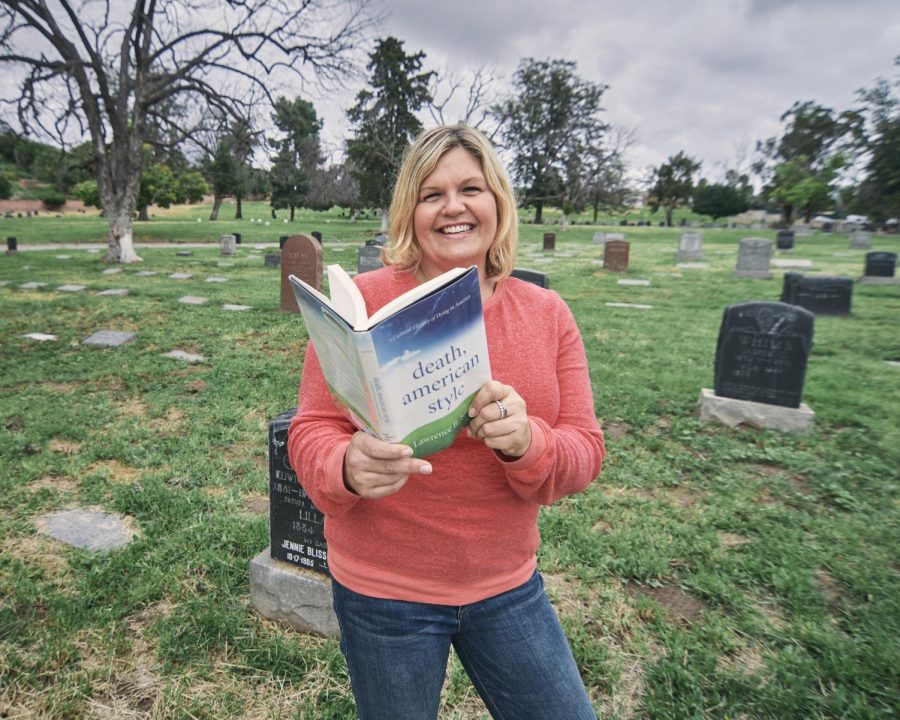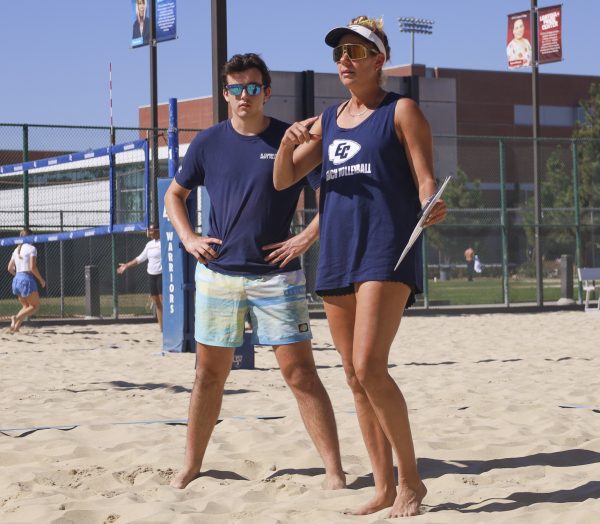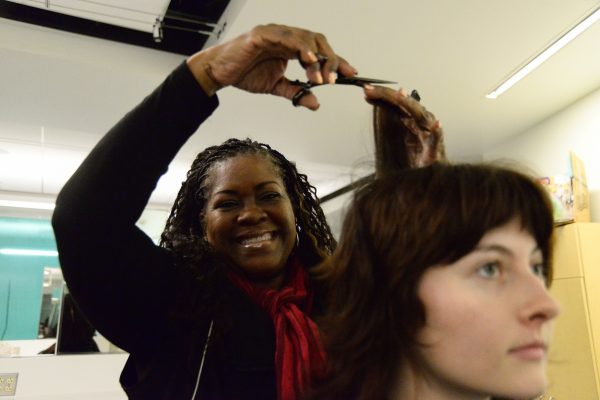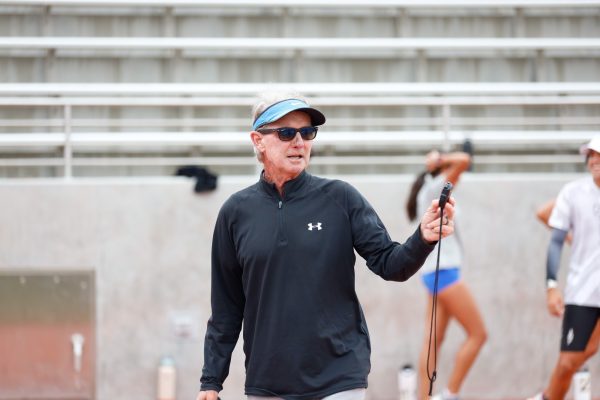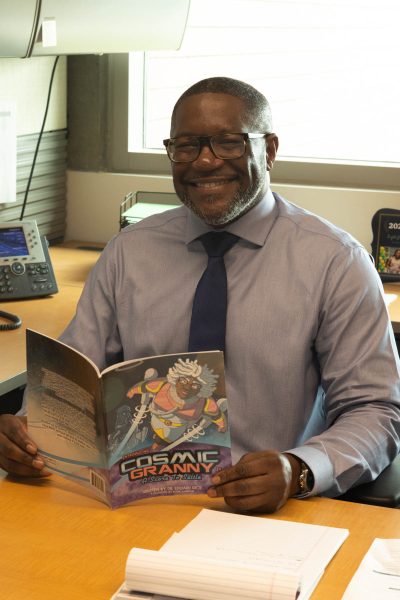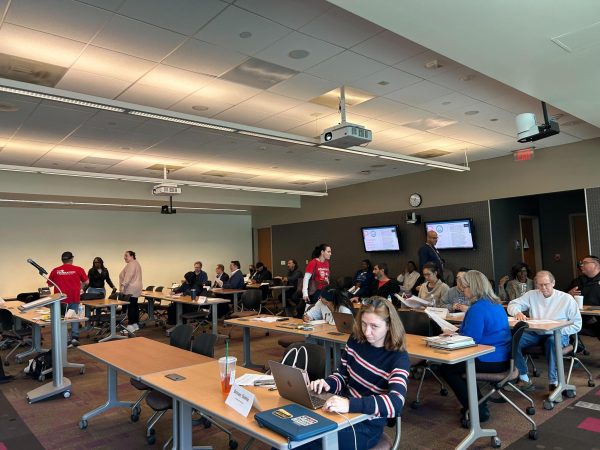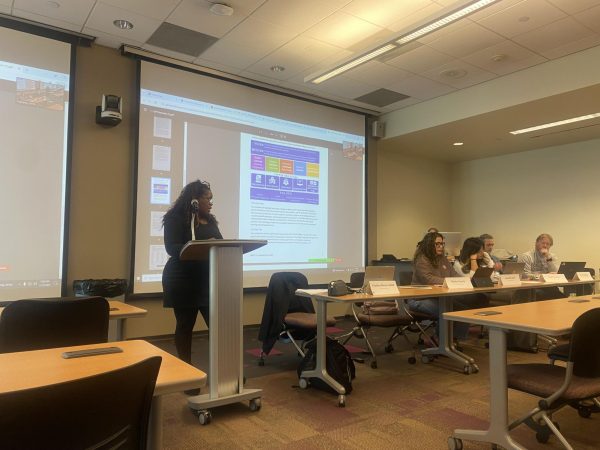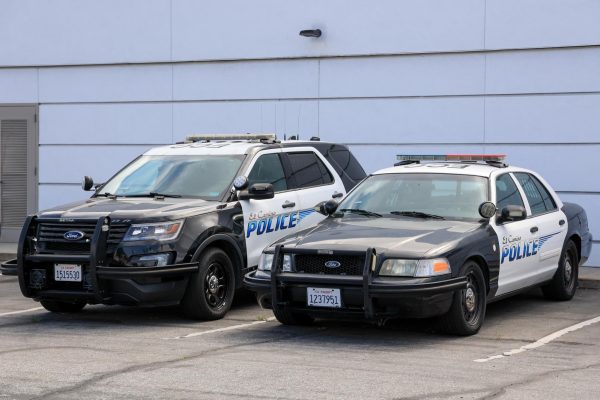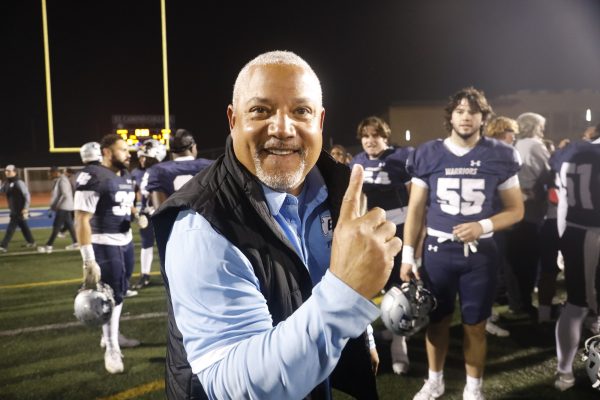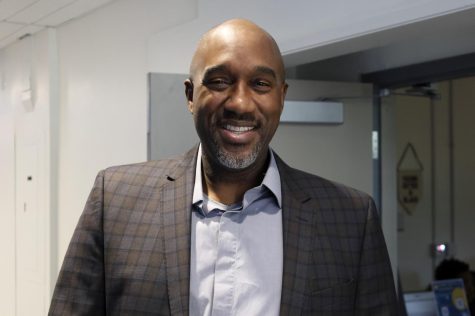Sociology professor shows students to embrace death and dying in revived course
Kassia Wosick, who teaches the Sociology of Death and Dying class at El Camino College, is shown here at Sunnyside Cemetery in Long Beach, California on March 14. In this course, she incorporates a mix of levity, life experiences and real-time events to help her students embrace, rather than fear, death. Cameron Klassen/The Union
Right around the time she began teaching a class on the sociology of death and dying, her beloved mother and dog were dying.
Kassia Wosick, a full-time sociology professor at ECC, said she was unable to interact with the body of her mother, who passed away from pancreatic cancer. She had never been that close or exposed to a dead body in her life.
“I wish I had a class like this earlier. I wish I had somebody to help me confront death a little bit more, a little bit sooner,” Wosick said. “So that when the time came to apply that stuff, I [would be] ready for it.”
Since then, she has used her personal experience as an opportunity to connect with students and bring death-related issues into an open discussion through her teachings in Sociology 115, the sociology of death and dying.
“It became an opportunity for me to not only frame death for students in a sociological way,” Wosick said. “It also became an opportunity for me to use my personal experiences to help bring some insight to the death and dying process for students.”
Wosick has been teaching at ECC since 2016 and started teaching Sociology 115 in spring 2018.
Her experience in taking a similar class at the University of Wisconsin-Eau Claire, where she earned her bachelor’s degree in sociology, and from working as a teacher’s assistant for another similar course at the University of California, Irvine, ultimately aided her commitment in reviving Sociology 115 at ECC.
“I remember these videos of funeral celebrations in Ghana. I remember how colorful and joyous [the coffins] were,” Wosick said. “I remember sitting in class thinking, ‘Why are Americans so formal in their funeral rituals and mourning practices?’”
In Sociology 115, Wosick discusses an array of topics, including the dying process, bereavement, grief and mourning.
She added that the course delves deep into unique aspects of the dying process that tend to be overlooked, for example, people who have passed away that do not have close family connections.
Stephanie Silva, a sociology major, said she enjoyed learning about death anxiety, which is the way people act and feel towards dying, both to themselves and towards their loved ones.
Francisco Vega, a sociology major enrolled in Wosick’s class, said he became interested in taking the class because his older sister would come home and talk about it every day at home.
In Sociology 115, students are required to complete a project in which they write a short paper about a death culture and create an object that represents the chosen culture’s death process, Wosick said.
A popular culture students have focused on for this project is the death ritual of the Sagada people, an indigenous ethnic group native to the Mountain Province in the Philippines, known as The Hanging Coffins of Sagada.
Wosick said the people of the town of Sagada place the coffins on the side of the mountain to prevent people and animals from getting to them.
Wosick also noted that the Malagasy people in Madagascar unwrap the bodies of their ancestors, write their names on new cloth and then rewrap the bodies so the ancestor’s names will always be remembered.
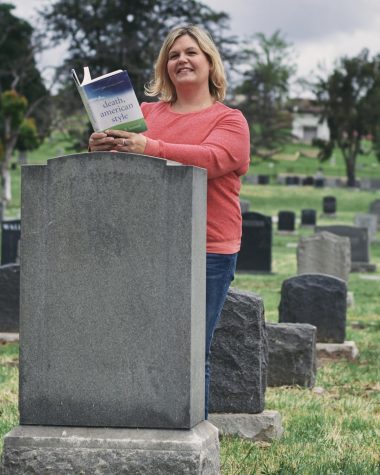
Wosick said Sociology 115 focuses on death positivity and the importance of letting go of the negative views on death and to, instead, embrace a positive framework and view on death.
“If we can learn how to live well, we can learn how to die well,” Wosick said. “But if we learn how to die well, we can learn how to live well.”
Wosick said she wants others not to view a cemetery as a somber place but as a place to connect, respect, and feel comfortable around.
“[To] confront death, we have to feel comfortable in our ability to be around it,” said Wosick.
Wosick hopes students walk away from the class at the end of the semester feeling a sense of agency over their lives and knowing how to be positive about death. Wosick would like for future students to know her class environment is open and friendly.
“Expect to laugh more, than you will to cry. Humor helps us with social tension and death is such a serious topic,” Wosick said. “On the first day, we started making jokes and [were] actually laughing. Humor is such a vital tool.”
Editor’s Note: A grammar error was fixed at 6 a.m. on Thursday, May 21.



